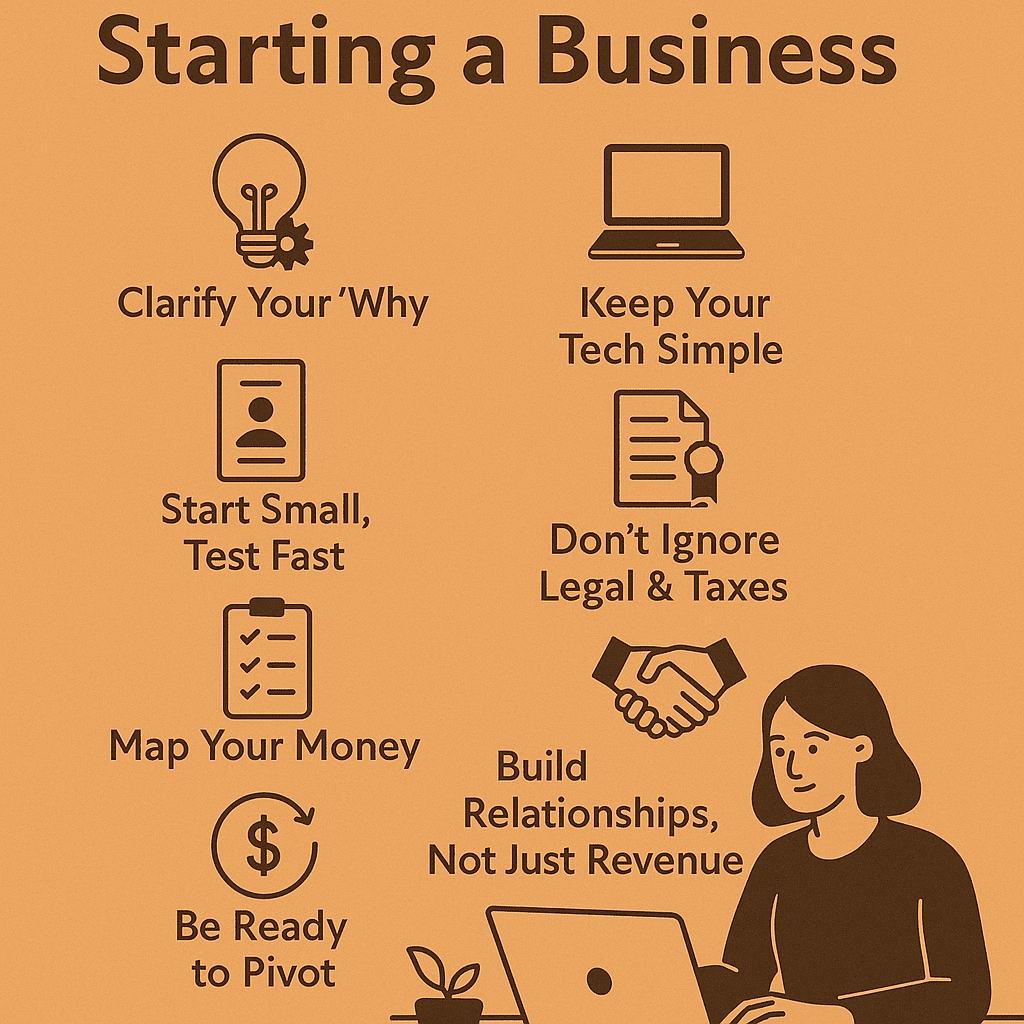
Starting a business is exciting—there’s passion, possibility, and the promise of freedom. But if you're like many first-time entrepreneurs, you may be diving in without a solid plan. Whether you're selling products, offering services, or launching a digital platform, a clear strategy can mean the difference between surviving and thriving.
Here are the must-consider factors if you’re starting (or thinking of starting) a business:
1. Clarify Your “Why”
Before anything else, ask yourself: Why are you starting this business?
Are you solving a problem?
Pursuing a passion?
Trying to create financial freedom?
Your “why” will anchor you when things get hard (and they will get hard).
2. Know Your Customer
You can’t sell to everyone. Understand who your ideal customer is.
What are their problems?
Where do they hang out?
What motivates them to buy?
Create a basic customer profile—even a simple one will guide your marketing and product decisions.
3. Start Small, Test Fast
You don’t need a fancy website or an office to get going. Focus on testing your idea.
Can you get one customer?
Can you create a quick prototype or sample?
Will someone pay for what you’re offering?
Getting quick feedback is more valuable than getting everything “perfect.”
4. Map Your Money
Cash is oxygen. Even if you don’t have a formal business plan, you need to understand:
What does it cost to run your business?
How much do you need to make to break even?
Can you afford to pay yourself?
Too many new businesses fail because they don’t track the basics.
5. Keep Your Tech Simple
Avoid the trap of signing up for every app or tool. Use what helps, ditch what distracts.
Start with low-cost tools (Google Workspace, Canva, basic accounting software)
Only invest in software once you’ve proven the need
Consider automation after you’ve built repeatable processes
6. Don’t Ignore Legal & Taxes
You don’t need to become a legal expert, but you do need to:
Register your business (LLC, sole prop, etc.)
Separate your business and personal finances
Understand basic tax obligations or hire someone who does
It's easier to do it right from the beginning than to fix it later.
7. Build Relationships, Not Just Revenue
Start building your network now. Partnerships, referrals, and collaborations often come from conversations—not cold calls.
Show up in communities (online or offline)
Don’t be afraid to talk about your business
Ask for feedback and advice—it builds trust
8. Be Ready to Pivot
Your first idea might not work the way you thought—and that’s OK.
Stay flexible. Keep learning. Listen to your customers. Being willing to shift is a strength, not a failure.
Final Thoughts:
You don’t need all the answers right now. But starting with intentional thinking instead of just “winging it” can save you time, money, and frustration.
Still feeling unsure? You don’t have to go it alone. Reach out to mentors, business consultants, or communities that can help you turn your hustle into a sustainable business.

